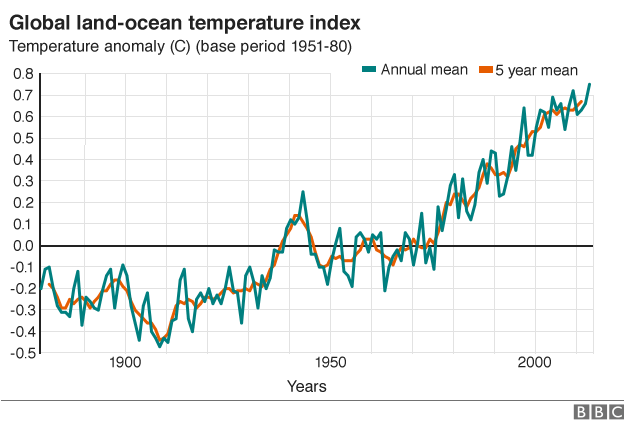Next Steps for UK Heat Policy
Committee on Climate Change – October 2016
The Committee on Climate Change released its "Next steps for UK heat policy" shortly after BEIS published its Clean Growth Strategy. The CCC's "Next steps for UK heat policy" gives a ringing endorsement to the use of heat pumps for low-carbon heating.
ICAX welcomes the report and the key messages that focus on heat pumps as the leading low-carbon option for decarbonising heating and cooling in buildings.
The Report notes that, "Heating and hot water for UK buildings make up around 40% of our energy consumption and 20% of our greenhouse gas emissions. It will be necessary to largely eliminate these emissions by around 2050 to meet the targets in the Climate Change Act and to maintain the UK contribution to international action under the Paris Agreement. Progress to date has stalled. The Government needs a credible new strategy and a much stronger policy framework for buildings decarbonisation".
ICAX agrees that a much stronger policy for buildings decarbonisation is urgently needed and that heat pumps is the route to take.
The Report says,"The main options for the decarbonisation of buildings on the gas grid in the 2030s and 2040s are heat pumps and low-carbon hydrogen". However, the report notes that "Heat pumps remain a niche option in the UK as previous policies have failed to deliver a significant increase in uptake".
ICAX welcomes the acknowledgement that previous policies have failed to deliver a significant increase in uptake of heat pumps. It is time for Government to recognise that the surest route to low-carbon heating is to provide the appropriate support for ground source heating and, in the commercial context, ground source cooling.
The Report is also enthusiastic about "low-carbon hydrogen". It is true that H2 contains no carbon and burning it produces only H2O (and no CO2). The report acknowledges that "To produce hydrogen in a low-carbon way at the necessary scale would require carbon capture and storage (CCS) – whilst this is technically well understood, it remains undeveloped".
The costs, risks and uncertainties of developing CCS are massive – and all in the future. Ground source heat pumps are available and efficient here and now.
Heat pumps produce no CO2 on site, and decreasing amounts at the power stations as the grid is decarbonised.
Ground source heat pumps can also provide thermal energy storage in the ground from summer to winter.
Ground source heat pumps are ideally matched to district heating networks which share a common ground array.
What should the UK Government do now?
Individuals, and individual companies, will not benefit directly from reducing their own carbon emissions – unless others do so too. Thus the responsibility for reducing the UK's carbon emissions rests squarely with the Government – because only a collective approach will make a difference.
It is the UK Government which has backed the Paris Agreement and it now needs to take real steps to reduce carbon emissions from the UK. The UK is very unlikely to reach its current carbon reduction targets without concerted action from Government.
Next steps for the Government
The pressing needs for the UK are to:
- to continue to decarbonise electricity generation (which is progressing well)
- and to decarbonise heating and cooling of buildings.
To decarbonise heating we need to put a stop to combustion of carbon compounds. The alternative is to use heat transfer for heating. That means using heat pumps now.
Energy Recycling is the Ultimate Energy Saving Measure
Does the Government yet recognise that ground source energy and recycling solar heat through the ground (from summer to winter) is the surest route to saving energy and reducing carbon emissions from heating?
Does the Government yet recognise that ground source energy and recycling cold through the ground (from winter to summer) is the surest route to saving energy and reducing carbon emissions from cooling?
The Report calls for energy saving and joined up thinking. Let's hope the Government can see the connection between renewable heating and renewable cooling, because energy recycling is the ultimate energy saving measure.
How much of the Non-Domestic RHI Budget has been spent on Heat Pumps?
The Government has spent £550m on non-domestic RHI to reduce carbon emissions from heating non-domestic buildings. The amount spent on heat pumps so far is just £7.5 million over four years across England, Scotland and Wales: less than £2 million a year.
The Government has suggested that subsidies for renewable energy should be reduced in times of austerity.
The subsidy on reduced VAT for domestic energy bills for gas, coal and oil in the UK was calculated at £3,971 million for 2011 by the OECD.
Can we hope that the Government will see fit to begin to redress this balance in the light of the UK's support of the Paris Agreement?
There is now a Silver Bullet for controlling carbon emissions from heating
It has been said that "there is no silver bullet for the decarbonisation of buildings". We disagree. The Silver Bullet is called "ground source energy": stop combustion for heating and use heat transfer instead. The UK needs to adopt a policy of joined-up heating and cooling based on thermal energy storage in the ground.
The full CCC report on Next steps for UK Heat Policy is available here.
See Ground Source Heating See Ground Source Cooling See Ground Source Energy

